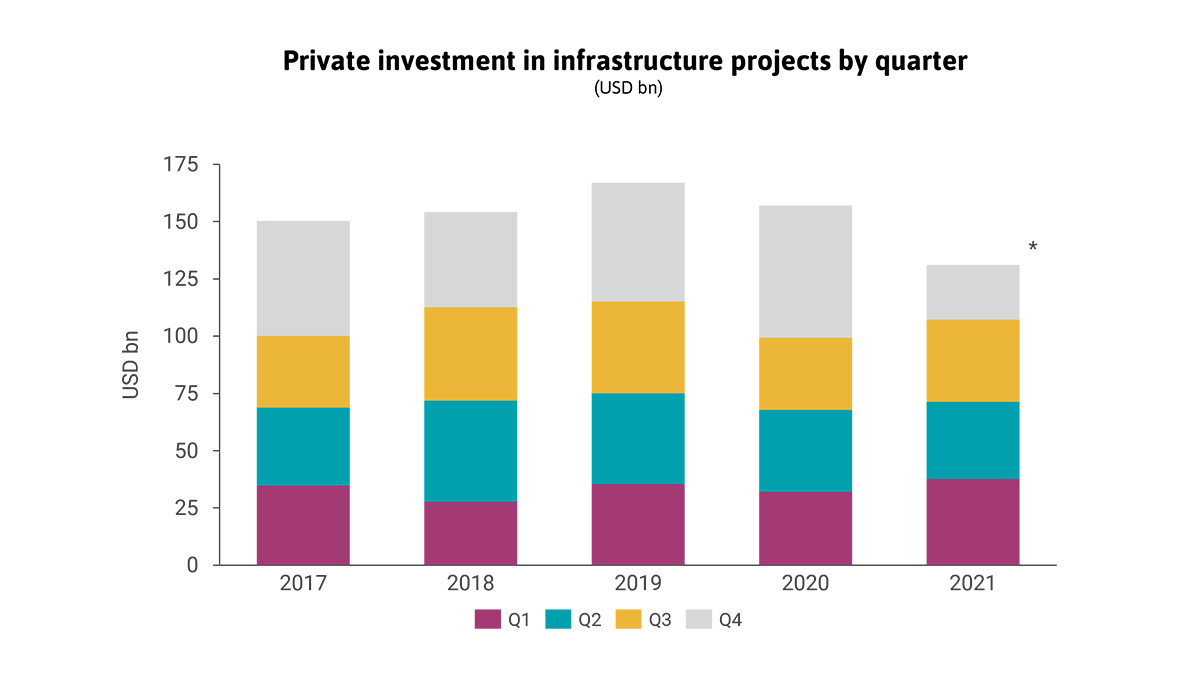1740 results found
Featured results



More results
A set of practice note encourages a staged assessment of the potential benefits from delivery of an early works packaging strategy to be undertaken early in the planning phase on all major infrastructure construction projects.

This resource consists of a variety of options available to address the principle as applicable to the particular circumstances of a project.

This document explains the stages of project development and the level of detail that may be confidently provided to the public at each stage.

The policy framework for investment provides a systematic approach for improving investment conditions and a comprehensive checklist of key policy issues for consideration by any government interested in creating an enabling environment for all types of investment.

The framework provides a description of the job roles, capabilities and learning initiatives for professionals involved in project delivery.

Improving the delivery of capital works and maintenance of water networks is essential to improving access to water and to do this, we need to rethink how we deliver infrastructure. Sydney Water has done just this with their Partnering for Success framework.
Pension investment in infrastructure is moving mainstream, at a time when this move will have even greater potential to help drive positive impacts
Alexandra Bolton, Executive Director of the Centre for Digital Built Britain shares why we need to invest in digital capabilities to improve infrastructure delivery.

AIFP equips African civil servants to effectively lead infrastructure project procurement and financing.



This simple and free tool enables project proponents to easily conduct early-stage cost-benefit analyses of bus transport projects.



Private investment in infrastructure projects in primary markets was resilient to COVID-19 pandemic shocks



Our examination of infrastructure banking regulations aims to unlock more private investment in infrastructure.


The global pandemic and climate change concerns raised at COP26 have elevated awareness of the need to build sustainable and resilient infrastructure, in tandem with implementing adaptation strategies and governance through innovative and collaborative partnerships between the public and private sectors
Low-income countries must maintain the necessary focus on basic goals such as improving energy access, providing safe and quality transport services, water, food security, and education - while forgoing opportunity, dealing with additional risks, and prioritising climate-smart investments.
In this session, the GI Hub provides an overview of our mission and mandate from the G20 and discusses two of the GI Hub’s key resources.
Emerging insights from Italy and its Next Gen EU implementation plans


Private investment in infrastructure projects in primary markets has been stagnant for seven years running


Today the GI Hub is pleased to announce the appointment of new Directors to our Board of Directors, and to gratefully acknowledge the contributions of our outgoing Directors.
This webinar will explore how governments and project proponents can mobilise innovative forms of commercial financing like blended finance and sustainability-linked loans.
In April 2021, the GI Hub hosted a workshop for the G20 Infrastructure Working Group (IWG) on the role of infrastructure in the circular economy. The workshop brought together the following experts in circular economy and infrastructure to identify synergies between the two sectors and explore how these opportunities can be implemented across the world.



 Improving Delivery Models
Improving Delivery Models









